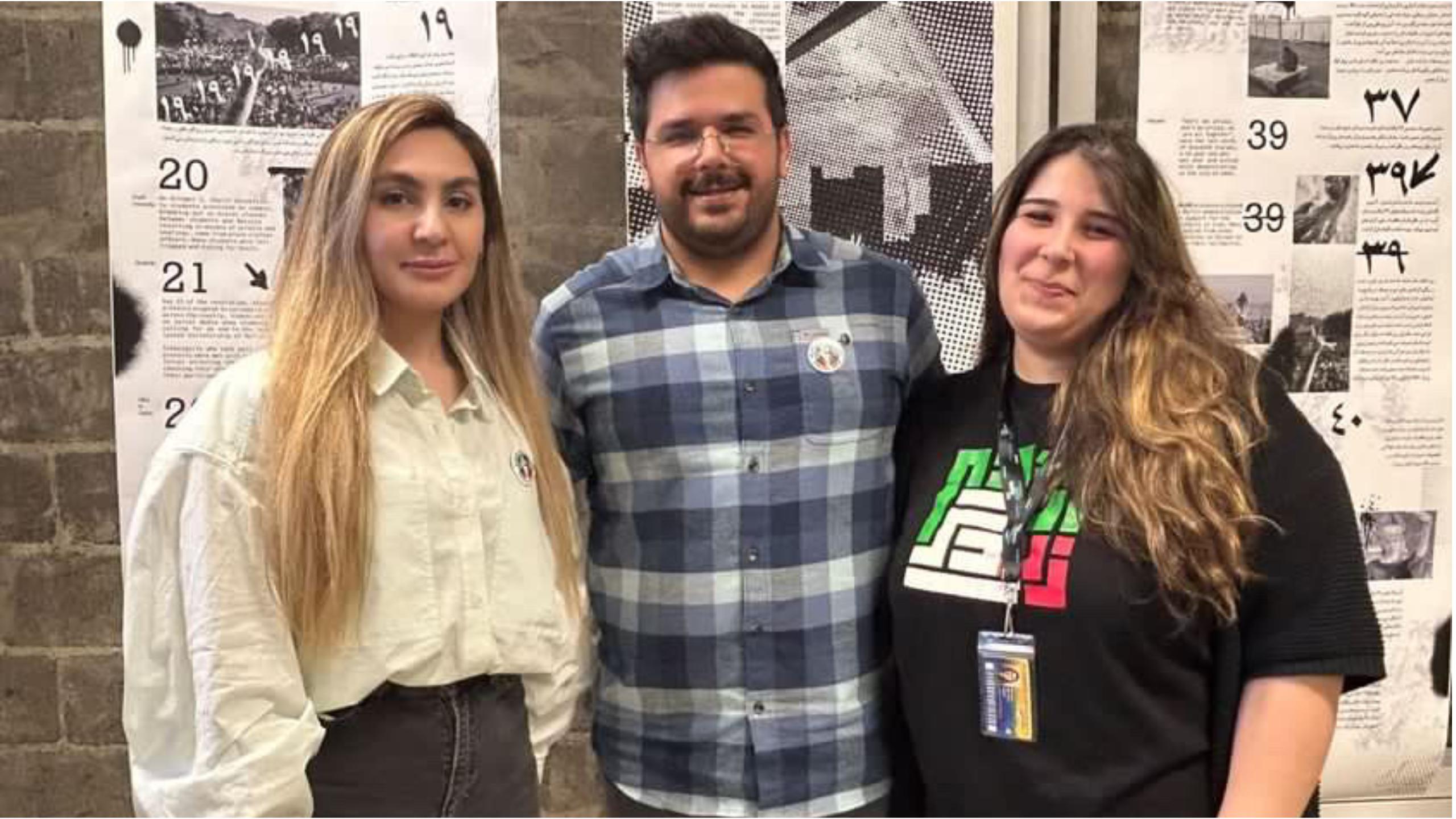By Maya Zaid
When third-year electrical and computer engineering PhD candidate Shirin Hosseini was unable to contact her family in Iran due to internet blockages during recent protests, she knew she had to create a space at Toronto Metropolitan University (TMU) where she could reach other Iranians.
On Sept. 16, 2022, country-wide protests broke-out when 22-year-old woman, Zhina (Mahsa) Amini died after being arrested by the Islamic republic’s so-called morality police in Iran—a force tasked with detaining people who violate the government’s dress code.
Most recently on March 5, Iran International, a U.S. based Iranian news agency, reported a surge in chemical attacks on Iranian schoolgirls which started in the fall.
According to the news outlet, about 80 schools were targeted by chemical attacks with dozens of girls hospitalized in early March. Since then, the international community has been seeking answers to the mysterious attacks.
“All of us needed this kind of event to get reunited again”
As a revolution demanding the dismantlement of the current Iranian government sparked back home, Iranian students at TMU were left looking for ways to raise awareness within their campus community.
Through the Career, Co-op and Student Success Centre, Hosseini was able to connect with Iranian community members Rojan Reybod, a Ted Rogers School of Management project coordinator and Sina Rahimi, a second-year building science PhD candidate. Together, the three created a five-day campus event called TMU: Be Our Voice.
“TMU does have such a large Iranian community, from faculty, staff and students and we wanted to bring everyone together as well as inform other people outside of the Iranian community on what’s happening,” said Reybod.
Within these three days, Reybod, Rahimi and Hosseini planned different events from speeches and mental health workshops to live musical performances at The Innovation Studio on campus from March 6 -10, to raise awareness about what’s happening in their homeland.
TMU president Mohamed Lachemi, vice president equity and community inclusion, Tanya Demello and Vice-Provost Students, Jen McMillan were all in attendance for the opening event on March 6.
In his speech, Lachemi addressed the negative image Iran has in media and wished the international community was more aware of the country’s rich history and contributions to civilization.
Rahimi said the first event was dedicated to showing support for Iranian students by bringing in university leaders to answer students’ questions and concerns.
“We decided to finally get things together and organize an event, which [brought] executive members from the university [together] and ask them what are their plans to support the Iranian communities,” she said.
When asked at the event about how the school aims to support Iranian students during this time, the university administrators said they try to create mental health and financial services for students in need as best they can.
At the event, paintings from Iranian artists such as Azadeh Momeni’s piece called “HOPE” were exhibited in the drop-in art gallery at the studio from Monday to Friday.
The art gallery also included a timeline featuring all the events in Iran from September 2022 to now, written both in Persian and translated to English for people who are outside the Iranian community.
A mental health day was planned on March 7 to help Iranian students manage their stress. It included Iranian psychotherapists Anahita Jakibchuk and Brian Williams, the TMU Test Centre and Accessibility Services manager.
Hosseini said since families in Iran are not currently in a good financial situation, Iranian students–especially international students like herself–cannot expect financial support from them.
“We wanted them to assign some mental health resources for Iranian students,” Hosseini said.
Rahimi said during these six months, Iranians have been dealing with continuous trauma, especially since not being able to get in touch with their families.
“Sometimes all we can do is cry…and it makes it worse when you don’t know if they’re arrested [or] if they’re being killed with no news,” he said.
The three-day event concluded on International Women’s Day on March 8, with a discussion led by Iranian panelists about women of the Iranian revolution. This event, which bolstered the highest turnout of the week, featured a live band later in the evening that performed revolutionary songs.
“Most of the songs that were playing last night were music coming from the revolution,” Reybod said. “People [have been] coming up with these songs that are more emotional and I think that was a really good way to connect with our attendees.”
The event room on the second floor of the studio was dimly lit and packed with Iranian students from universities across the Greater Toronto Area as an acoustic band played for the intimate crowd who sang along to emotion-filled anthems.
“I’m emotional and happy that we had our friends here with us. I think all of us needed this kind of event, to get reunited again,” said Hosseini.
Iranian panelist and TMU English professor, Nima Naghibi, said the event was incredible and much needed as TMU hadn’t shared that much support or information since the uprisings.
Naghibi’s work focuses around the intersection of Western feminist movements with Iranian feminist movements in the 20th century but coming from an Iranian background motivates her work as well.
Naghibi encouraged the international community to come together during this time. “If we all work together collaboratively, across borders, across nations, across all kinds of differences and learn to see each other as allies, then there’s some potential for real change.”
For more info Instagram @TMUBEOURVOICE










M. Noureldin
Well done, very informative, and clear to the point.